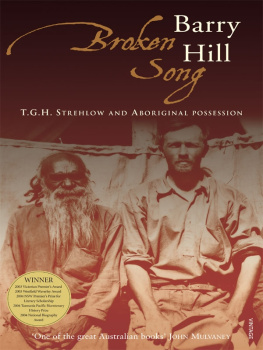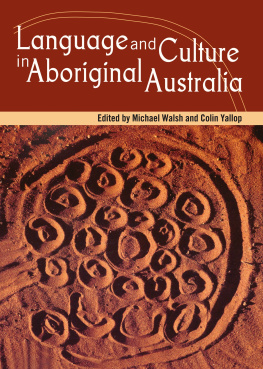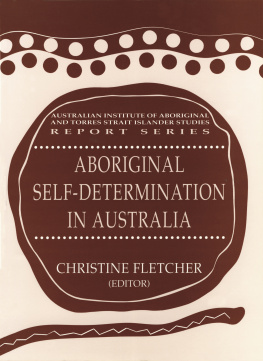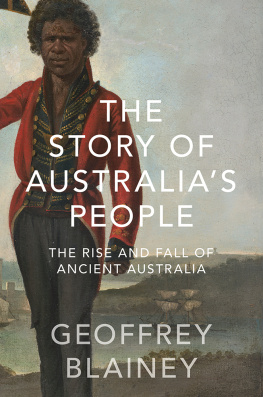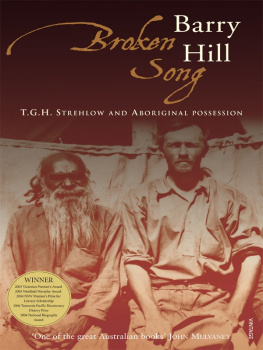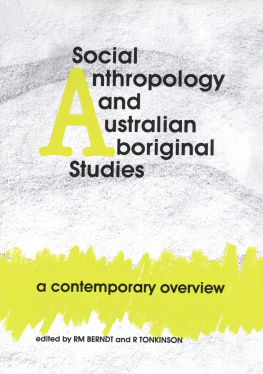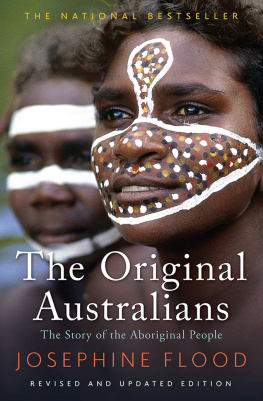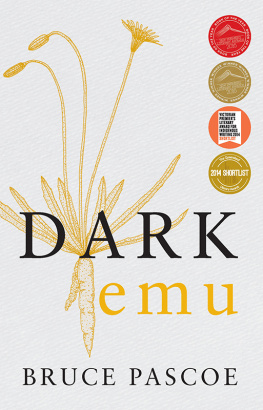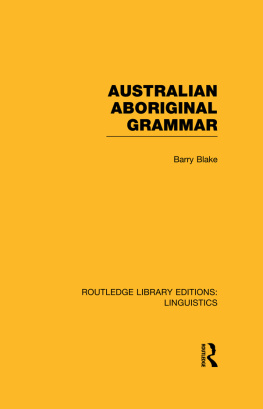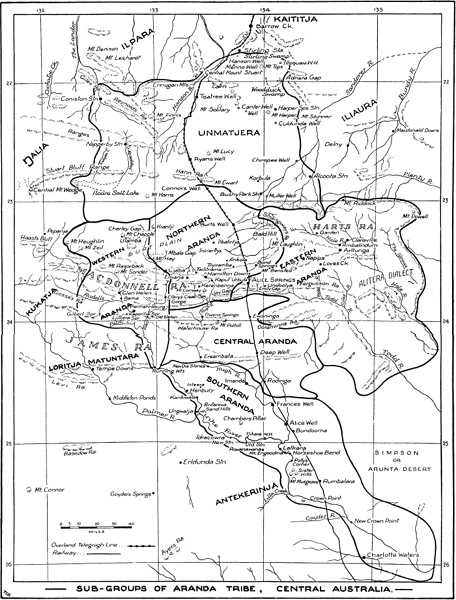Put colours in the bags
Close it all around
And make the netted bag
All the colours of the rainbow.
T HE EARLIEST DESERT song to be written into English belonged to the people around Lake Eyre. When it was sung it came out of parched salty ground, and in the pristine air of that country its notes were as crystal as the Milky Way.
Mull a-a-awora-a-a
Yoong-arra-a-a Oondoo-o-o
Ya Pillee-ee-e Mulka-a-a-a angienie
Kooriekirra-a-a ya-a-a-ya.
The translator was Samuel Gason, a police trooper, who had spent a nine years sojourn among the Dieyerie Tribe. His Diyari was not flash, but he had made a fist of the sounds so that one can, with an application of a certain pitch, at which the Aboriginal singers were soon recognised as masters, enact them in ones imagination.
Gason was impressed by it as a secret song, or at least one kept from the women on pain of death, as it was part of the red ochre business. At certain times of the year men went off for some weeks and came back with loads of the invaluable ochre for their sacred ceremonies. Seeds were collected by women, the camp prepared to receive the honoured men burdened with ochre. And the bags were woven to put the colours in, woven as if to net all the colours of the rainbow. A song of work, and belief, and celebration of beauty rolled as neatly into four lines as can be.
The trooper was, as policemen often were in the Outback, in good Christian company when he published his song. In the same book, The Native Tribes of South Australia , published in 1879, only 40 years after the first white people
It is evocative enough, especially the abundant interjection of wonder. The singing was strong, it was alive with a verbal and physical energy. But that did not mean the songs would last for ever, for reasons most people are now all too familiar with.
The better translations of the inland people were done by the Lutheran missionaries around Lake Eyre. They wrote down the songs in the course of their Janus work as translators. They wanted to know how the native language worked, and something of native belief and feeling. They sought and often brilliantly gained this knowledge the better to erase heathenism from the shores of the lake so that all the waters of the desert would be available for Christian baptism.
The first inland desert language to be translated into a European language was Diyari: this by the industrious and bookish Pastor Reuther, who laboured in the wilderness of the Lutheran mission built on Lake Killalpaninna, near Cooper Creek. No country to the European eye could be more forsaken, but not, surely, after it was visited by the Word. Reuther translated from his native German: at first hymns, then passages from scripture, then whole Gospels. At the same time he was transcribing legends told to him by men who came in out of the heat and the dust, carrying many flies with them, into the cave of his book-lined study. They told him songs, too, and Reuther wrote them down.
Kana karura tili maltara julkani
ja wodatarana ngamani
Wirda njamenunda ngana ngura
duka wajimana palau wora
Daka pitjeri dakajurari
kana karuru tilli
Wolpa wirra ngalpurungalpuru
wolpa kanala kuturu ngunai
wolpa wirra davadara.
This was the Pampo ulu Song, as Reuther called it. In his notebook he did not render it in anything but Diyari, and I leave it on the page like this as a raw example of an Aboriginal verse written phonetically, and as such, offering to us its physical reality and perhaps something of the sentiment in its sound system. For that is what language is like: it is a somatic act before it is anything else: it goes into the ear before anything else and all our attempts to understand its speaker are bound up with bodies in space together, with a form approaching intimacy. Bodies sing in the company of voices.

